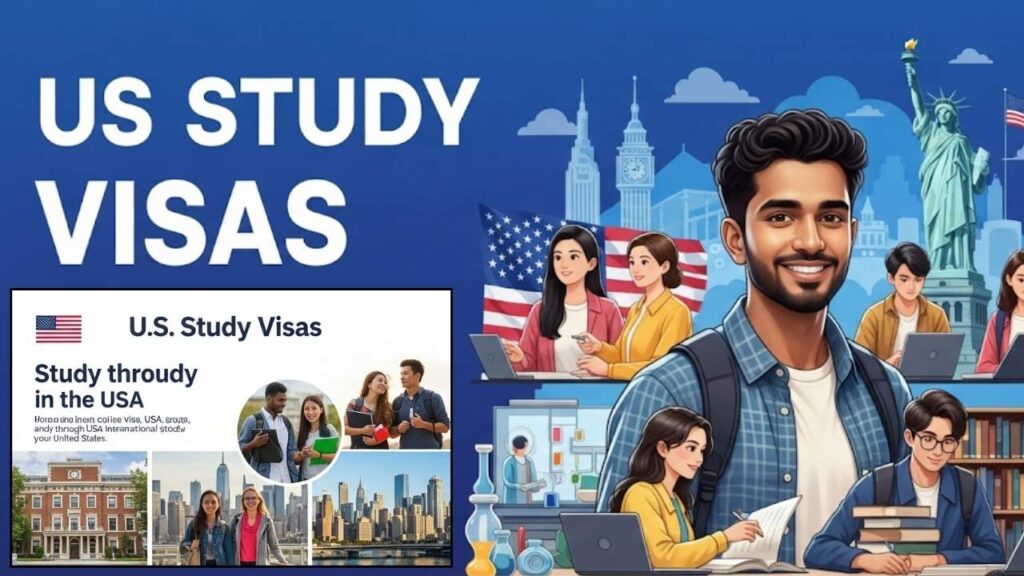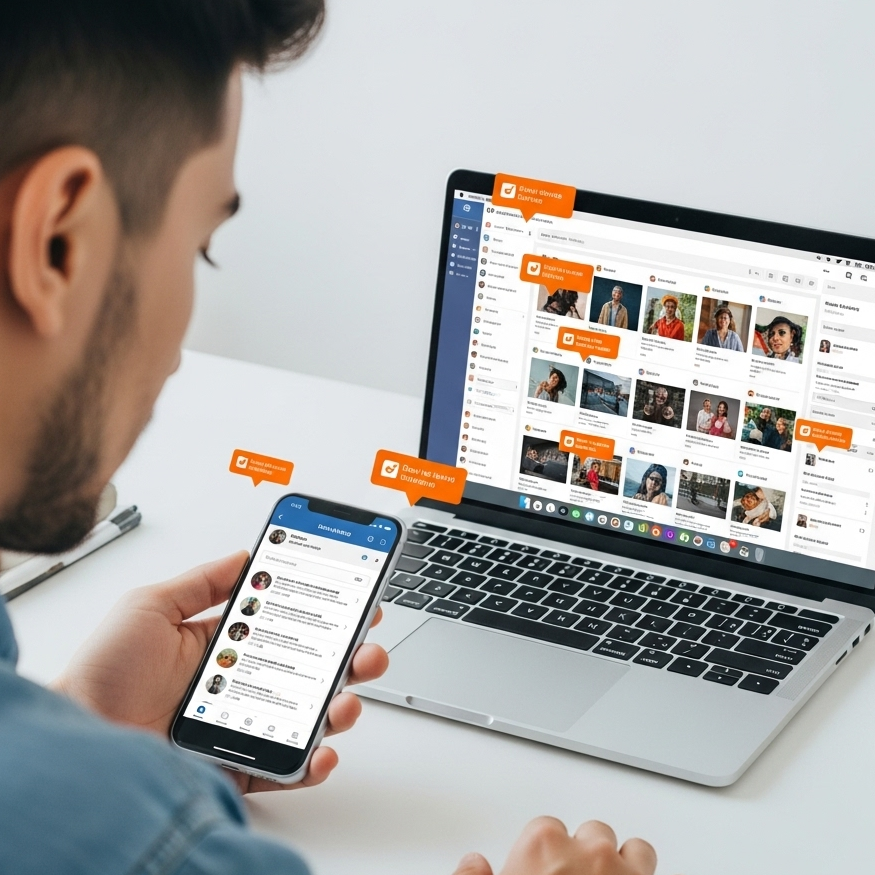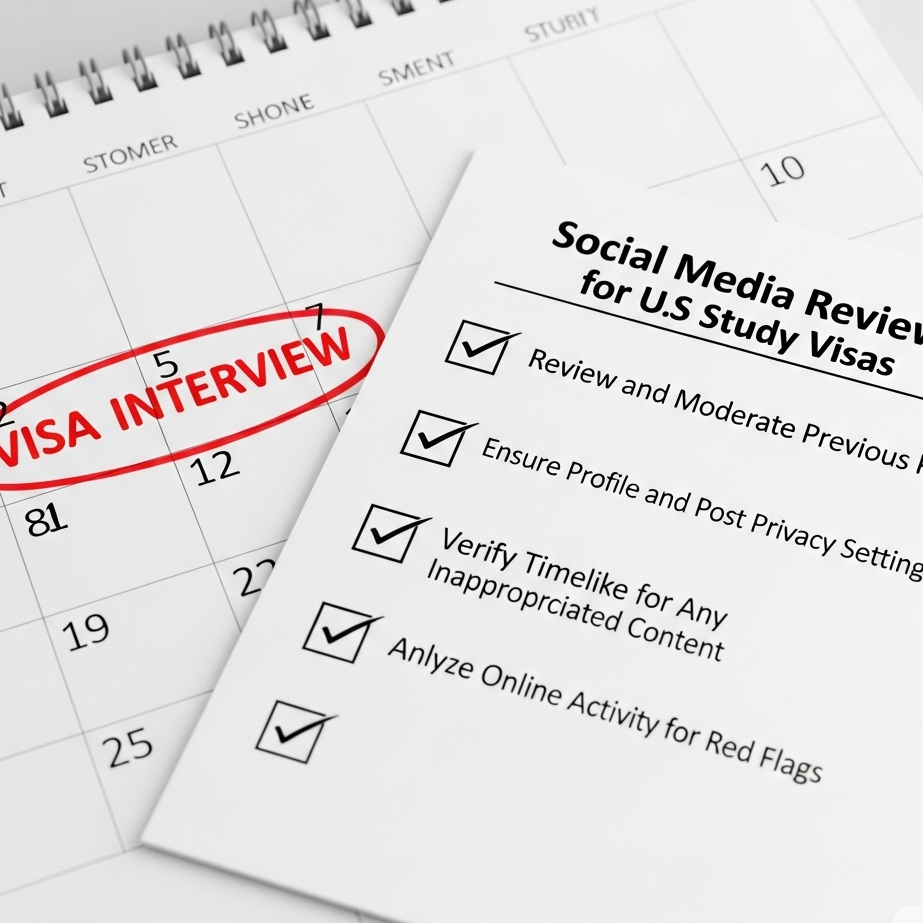US Study Visas – For aspiring international students dreaming of pursuing higher education in the United States, the recent resumption of US Study Visas is welcome news. However, this re-opening comes with a significant new condition: a mandatory requirement for applicants to provide access to their social media accounts. This new policy, aimed at enhancing national security, means that your digital footprint is now an integral part of your visa application.

US Study Visas
| Key Fact | Detail/Statistic |
| Policy Rollout | US State Department announced resumption of student visa processing with mandatory social media screening on June 19, 2025. |
| Requirement | All F, M, and J non-immigrant visa applicants must set social media accounts to “public” for official review. |
| Purpose of Vetting | To identify applicants who may “bear hostile attitudes toward our citizens, culture, government, institutions, or founding principles” or support terrorism/antisemitism. |
| Consequence of Non-Compliance | Refusal to grant access may lead to visa rejection, as it can be interpreted as an attempt to evade screening or hide activity. |
| Scope of Review | Consular officers will look at public posts, comments, photos, videos, connections, group memberships, and any content that could raise red flags, including politically activist content. |
| Timeline | Generally, recent activity within 3 to 5 years is reviewed, but older posts may be considered if relevant. |
The resumption of US Study Visas, even with the added social media scrutiny, is a significant opportunity for international students. While the new requirements demand a more diligent approach to your online presence, they are manageable. By understanding the policy, meticulously auditing your social media, and presenting a transparent and positive digital footprint, you can significantly enhance your chances of a successful application.
This guide is designed to empower you with comprehensive, actionable, and encouraging information to help you understand and successfully navigate the US Study Visas application process in this new digital landscape. My experience advising students has shown me that preparation and transparency are your greatest allies.
The New Reality: Social Media and Your Visa Application
The US State Department has made it clear: if you’re applying for an F, M, or J non-immigrant visa, your social media accounts are now subject to scrutiny. This expanded screening is part of a broader effort to ensure national security and public safety. What does this mean for you, the aspiring international student? It means your online presence needs to be as meticulously curated as your academic transcripts.
Consular officers are now explicitly directed to conduct a “comprehensive and thorough vetting” of all student and exchange visitor applicants. The primary goal is to identify individuals who might harbor “hostile attitudes toward our citizens, culture, government, institutions, or founding principles.” This extends to looking for any content that could indicate support for terrorism, antisemitism, or other activities deemed a threat to national security.
What Accounts Are They Looking At?
While the precise list of platforms isn’t exhaustively published, the general understanding is that any platform where you have a public presence can be reviewed. This includes, but isn’t limited to, Facebook, Instagram, Twitter (X), LinkedIn, TikTok, and potentially even public forums or blogs. The critical directive is that you will be asked to adjust your privacy settings to “public” for all your social media profiles. Refusal to do so will be viewed with suspicion and could lead to your visa being denied.

How to Prepare Your Digital Footprint?
Navigating this new requirement can feel daunting, but with a strategic approach, you can ensure your social media presence supports your visa application.
1. Audit Your Online Presence Thoroughly
Before you even think about submitting your visa application, perform a deep dive into your social media history. Go back several years – at least five, as this is the period immigration authorities often review. Look for:
- Public Posts, Comments, and Likes: This includes anything you’ve shared, commented on, or even “liked” on platforms. Consider the context of every post. A joke in one cultural context might be misinterpreted in another.
- Photos and Videos: Are there any images or videos that could be misconstrued? This includes content where you are tagged, even if you didn’t post it yourself.
- Group Memberships and Connections: Review any groups you’ve joined or pages you follow. While not directly your content, affiliation can sometimes be seen as an endorsement.
- Direct Messages (if publicly accessible): While private messages are generally not accessed, any message that becomes public through screenshots or other means could be reviewed.
2. Adjust Privacy Settings to “Public” (As Required)
This is a non-negotiable step. The US State Department explicitly states that applicants will be asked to make their social media profiles public. If you don’t, it could be seen as an attempt to hide something, leading to a denial. For platforms where you have control over individual post privacy, ensure your main profile is accessible as requested.
3. Content to Flag and Potentially Address
The overarching theme for what the officers are looking for is “hostility” towards the U.S. or its founding principles. This can be vague, but generally includes:
- Political Activism: While freedom of speech is a cornerstone of many democracies, content that is highly critical of the U.S. government, its policies, or institutions could be problematic. This is especially true if it’s associated with violence or extremist views.
- Support for Banned or Extremist Groups: Any indication of support for terrorist organizations, groups advocating violence, or those designated as threats to national security will almost certainly lead to rejection. This has specifically included scrutiny for antisemitic activity or support for groups like Hamas, particularly in the wake of recent global events.
- Illegal Activities: Posts showing illegal drug use, underage drinking (if you are underage in the US), or any criminal behavior, even if presented humorously, are serious red flags.6
- Inconsistencies with Application: Ensure your online persona aligns with the information in your visa application. For example, if you claim to be a serious student of science, but your social media is dominated by content unrelated to your stated academic goals, it might raise questions.
- Hate Speech or Discriminatory Content: Any posts containing derogatory remarks, hate speech, or discrimination based on race, religion, gender, or any other protected characteristic will be viewed negatively.
I’ve seen many successful applicants who focused on presenting a well-rounded and positive image, highlighting their academic aspirations, community involvement, and genuine interest in studying in the US.

Don’t Panic, Be Strategic
It’s natural to feel anxious about this increased scrutiny. However, outright deleting all your social media accounts might raise more suspicion. Instead, focus on transparency and proactive management.
- Think Before You Post (and Review Past Posts): This golden rule is now more critical than ever. Before posting anything, consider how a consular officer might interpret it.
- Maintain Consistency: Ensure your online profile is consistent with your personal and professional identity. Your social media should reflect the serious and dedicated student you present yourself to be in your application.
- Highlight Positives: Use your social media to your advantage. Showcase your academic achievements, participation in community service, positive cultural experiences, and genuine enthusiasm for your chosen field of study.
- Seek Advice: If you are unsure about specific content, it’s always wise to consult with an experienced visa counselor or immigration attorney.
The State Department’s Stance
“The enhanced social media vetting will ensure we are properly screening every single person attempting to visit our country,” stated a senior State Department official. This underscores the seriousness of the new policy.
What if I have controversial but legitimate political views?
This is a grey area that causes significant concern for many. While expressing legitimate political speech is a right, the US government’s policy focuses on “hostility” towards the US. Legal experts have noted that this policy could “chill legitimate political speech.”8 If your online activity demonstrates a history of political activism, especially if associated with violence or views described as hostile, it will be considered during your application. It’s crucial to understand that consular officers are looking for content that suggests a threat to national security or public safety.
FAQ
Q1: Can deleting old social media posts hurt my US Study Visa application?
A1: While there’s no official guidance stating it will definitively hurt, experts suggest that sudden, widespread deletion of content just before an application might raise suspicion. It’s generally better to curate and be transparent rather than attempting to hide significant portions of your online history. Focus on ensuring your public-facing profiles align with the visa requirements and your overall image as a prospective student.
Q2: What if I have a common name and someone else’s social media content is being confused with mine?
A2: This is a legitimate concern. During your interview, or if you are asked to provide your social media handles, ensure you clearly differentiate your accounts from others. If you believe there’s a misunderstanding, be prepared to provide evidence that the content in question is not yours. Maintaining clear, unique identifiers on your own accounts can help.
Q3: Do I need to make all my social media accounts public, even ones I rarely use?
A3: The official directive states that applicants will be asked to adjust the privacy settings on “all their social media profiles to ‘public’.” While the focus might be on commonly used platforms, it’s safest to assume this applies broadly.11 If you have accounts you truly no longer use, consider deactivating them before applying.
Q4: How far back will US visa officers check my social media history?
A4: Generally, recent activity within the last 3 to 5 years is the primary focus. However, officers may review older posts if they deem them relevant to assessing your eligibility or potential inadmissibility. Therefore, a comprehensive review of your entire public online history is recommended.






